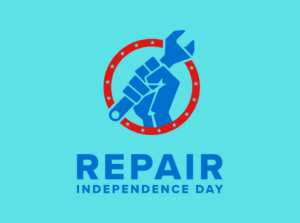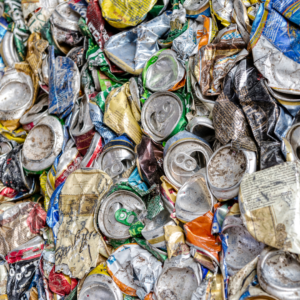The Minnesota Pollution Control Agency (MPCA) regularly submits a report, to the Minnesota legislature, with policy recommendations to address the state’s growing waste. On May 31, Eureka, along with a group of member organizations that make up the MN Zero Waste Coalition, submitted a letter to the MPCA with a list of recommended policies to move us toward zero waste. The letter points out that Minnesota needs a comprehensive plan that prioritizes waste reduction and reuse strategies and invests in policies that support a zero waste economy for the state. Below is the letter in its entirety:
May 31, 2023
Re: MPCA’s Solid Waste Policy Report
Dear Commissioner Kessler & Assistant Commissioner Koudelka,
The undersigned organizations, as part of the Minnesota Zero Waste Coalition, appreciate the opportunity to submit comments on the MPCA’s Solid Waste Policy Report. Our state needs a comprehensive plan that prioritizes waste reduction and reuse strategies and invests in policies that support a zero waste economy for Minnesota.
Our climate crisis is directly correlated with an economy that supports linear consumption over circularity. According to the EPA, 40% of our greenhouse gas emissions come from linear consumption – producing, transporting, using, and disposing of a material good. The current solid waste trends in Minnesota are not sustainable. According to the MPCA’s SCORE report, not only is the total tonnage of solid waste continuing to increase but an estimated two-thirds of what ends up in landfills and incinerators could have been reused, recycled, or composted.
With proactive legislative and regulatory action, we can prevent this waste. The MPCA must take bold steps to address the growing waste crisis by advancing policies that create a zero waste economy for our state. The following policy recommendations should be included in the Solid Waste Policy Report:
Restructure the Waste Hierarchy: Minnesota’s waste hierarchy (115A.02) should be updated to meet the international definition. Incineration should be considered unacceptable. Rather than holding an elevated position within the hierarchy, incineration should be at the bottom of the hierarchy along with land disposal that produces measurable methane, given the environmental and public health impacts on Minnesota communities.
Upgrade Landfills and Landfill Gas Regulation: The twenty-year global warming potential of Minnesota’s municipal solid waste landfills that must report to the EPA’s GHRP is 1.5 million CO2e. That is equivalent to 323,000 passenger vehicle annual car emissions. Fortunately, there are proven, cost-effective practices and technologies that would significantly mitigate methane emissions from landfills. Maryland, Washington, California, and Oregon have moved beyond the inadequate floor of landfill air emissions regulations set by the U.S. EPA and set stronger emissions regulations for existing landfills. Minnesota must update its state landfill emissions rules to be as strong as these leading states. Additionally, the agency should not miscategorize landfill gas to energy, sometimes labeled “renewable natural gas”, as a viable greenhouse gas or waste reduction strategy. Rather, RNG from landfills creates a perverse incentive to continue to put organic waste in landfills, which in turn creates potent methane emissions.
Organics Diversion and Food Waste Prevention: While we need to regulate landfill gas, we simultaneously need to stop methane at the source through organics waste diversion. The bedrock policy that catalyzes food recovery and is most effective at preventing organic waste from landfilling or incineration is a mandatory organic waste ban. Policy is needed to phase out organic food waste from landfills and incinerators while investing in programs that reduce food waste, educate and assist consumers, address food insecurity, and cultivate food waste recycling infrastructure like composting. The MPCA should intentionally promote community composting and ensure the associated economic benefits are equitably accessible. We have seen successful organic waste disposal bans in New York, California, Maryland and other states. Anaerobic Digestion Oversight and Regulation – Minnesota has little experience with Anaerobic Digestion (AD) in the context of municipal solid waste management. But with increased state and federal funding for AD and growing interest in expanding the sector, the MPCA needs to develop more rigorous standards and oversight which take into account public health, worker protections, and environmental safeguards. These regulatory standards for AD must at least require the use of source separated compostable materials for feedstock and generate compost that is beneficial to plant growth, soil health, and water quality. MPCA should also ensure that guidelines for organics and food waste management prioritize prevention and the reduction of feedstocks rather than promoting a reliance on AD to deal with excess waste.
Effective Extended Producer Responsibility: Under a robust EPR system, producers would pay for the lifecycle of their packaging while reducing waste and moving towards more recyclable, compostable, and reusable products and packaging. An effective EPR program would include strong oversight and enforcement; set clear reduction, recycling, and reuse targets; prohibit false solutions like “chemical recycling, and eliminate the most problematic materials, toxics and practices. While strong EPR could support a transition to zero waste, a weak EPR system could make our waste crisis worse while weakening our existing infrastructure.
Deposit Return System: In addition to EPR that addresses packaging, a deposit return system for bottles will further support higher recycling rates and ultimately keeping resources in the ground. An effective statewide bottle deposit program in Minnesota should reduce waste, increase recycling rates, promote reuse, support a local feedstock for our supply chain, and create fair and inclusive standards for informal workers.
Investment in Waste Reduction and Reuse Infrastructure: We cannot reduce our waste without adequate infrastructure to support reuse and refill systems. Funding is needed to help businesses, schools, and other entities overcome startup hurdles as they build competitive models around reuse and refill.
Electronics Recycling: Electronic waste should be a top priority for the MPCA. Not only to keep this stream out of landfills and incinerators but to recapture the precious metals and reduce the need for extractive methods of metals production. A key strategy for a successful e-waste problem is to provide universal, free drop off for ALL electronic waste, in order to demystify the process to consumers.
Hazardous Waste Collection: Similar to electronic waste, hazardous waste collection and drop off is currently too onerous for residents. Policy changes need to be implemented to remove collection barriers and provide greater access to drop-off sites. We are happy to provide additional information on any of these policy proposals and appreciate your consideration of our comments. If you have questions, please contact Lucy Mullany with Eureka Recycling (lucym@eurekarecycling.org) and/or Nazir Khan with the Minnesota Environmental Justice Table (nazir@mnejtable.org).
The following organizations sign-on in support of these comments:
Beyond Plastics Mankato Area
Clean Water Action / Fund
Coalition to Reduce Plastic
CURE Minnesota
Eureka Recycling
Isanti County Environmental Coalition
Minnesota Center for Environmental Advocacy
Minnesota Environmental Justice Table
Minnesota Zero Waste Coalition
Northeast Metro Climate Action
Repowered
Rusty & the Crew
Sierra Club North Star Chapter
Share this Story!

Authentic Solutions to Plastic Pollution: A Plastic Free July Webinar & Film Screening
Join us on Wednesday, July 3st, at 2pm CT for the film screening and discussion. Reduce, reuse, then recycle: this

Repair Independence
It is Time to Assert Your Right to Repair Your Own Stuff! On July 1st, the Digital Fair Repair Act

Minnesota Passes Extended Producer Responsibility for Packaging
Minnesota just became the fifth state to pass Extended Producer Responsibility (EPR) for Packaging. The Packaging Waste & Cost Reduction

Strengthening the Economy and Environment Through Aluminum Recycling
The Importance of Aluminum Recycling Although aluminum is the most abundant element in the earth’s crust and the third most
